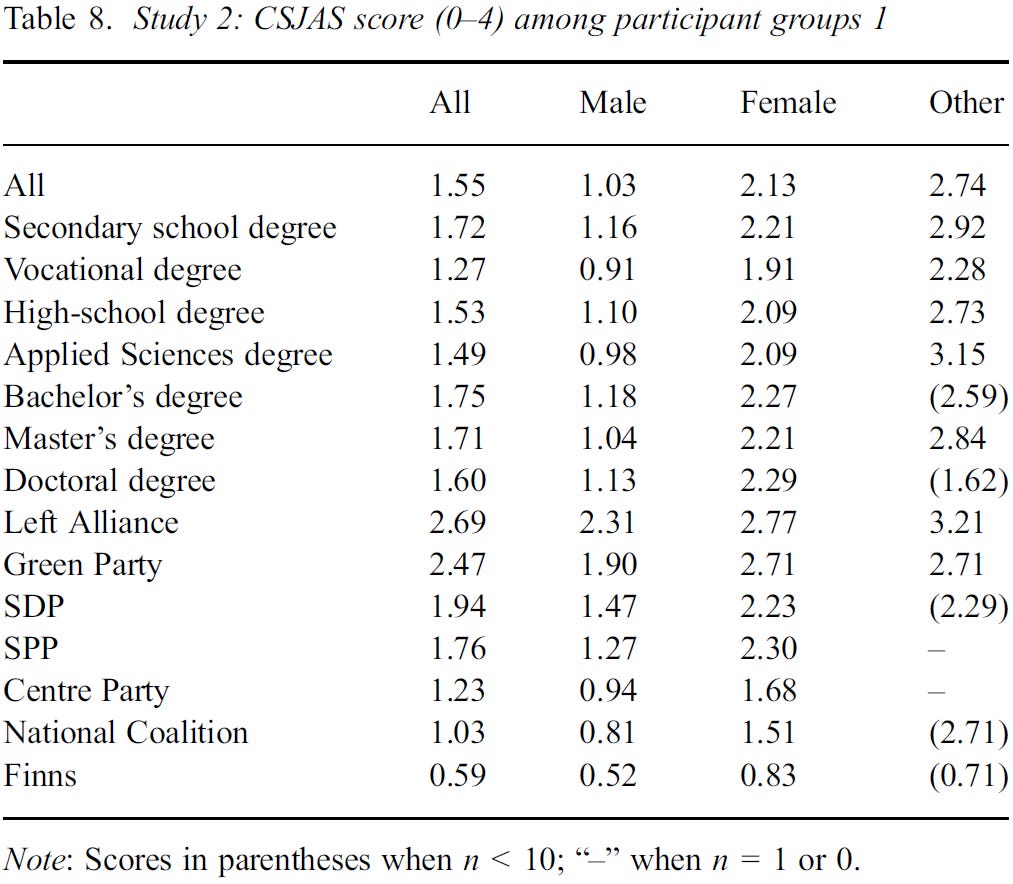Dividing the World into Oppressed and Oppressors, Measuring Wokeness, and 6 Popular Myths
The Nature-Nurture-Nietzsche Linkfest for May 2024

Welcome to my latest Linkfest: a collection of links to papers and articles that have grabbed my attention in the weeks since I published my last Linkfest. It’s been a particularly busy few weeks for new research, so I’ve got lots of great studies to share. Topics covered include how social media distorts our view of public opinion, the tendency to divide the world into vulnerable groups and invulnerable groups, sex differences in wokeness, six social-science myths, and some recent advances in AI.
You can access the complete collection of Linkfests here.
Hot Off the Press: New Findings in Psychology
Social Psychology
People are so certain that their views are right that if someone disagrees with them, they often assume that that person just couldn’t have been listening properly. Link.
People who think they have exceptional social skills tend to have worse social skills than those who rate their social skills as poor (see panel on left below). This pattern is unique to social skills; it’s not the case for general intelligence (see panel on right). Link.
Public opinion on controversial topics such as abortion, euthanasia, and homosexuality changes largely because of generational replacement - that is, older generations dying off - rather than individuals changing their minds. As Max Planck once said about science, the discussion of controversial topics apparently progresses one funeral at a time. Link.
Social media creates a distorted picture of the range of public opinion. As we see in the following graph, this is because extreme voices tend to dominate the conversation, giving everyone - extremists and moderates alike - the false impression that most people hold extreme views. Link.
Political Psychology
People on the political left tend to see social groups either as highly vulnerable or as highly invulnerable. People on the right, in contrast, tend to see all groups as somewhere in between: not especially vulnerable or invulnerable. The researchers who discovered this pattern note that, “The strong distinction shown by liberals is consistent with the emphasis of progressives on the importance of systemic power differences, and the tendency to typecast social groups as oppressors and oppressed.” Link.
Cynicism about politics is sometimes just that: cynicism about politics. But a new paper shows that it’s also sometimes a way for people to avoid looking like they don’t know much about politics. The logic seems to be that if I can see through the façade to its ugly core, I must be pretty knowledgeable. Link.
People who see themselves as victims are more likely than others to support political violence, according to newly published research. As the researchers note, “trait victimhood is an important factor involved in the processes of political violence, that should be taken into account in future theoretical work, and also when designing deradicalization and conflict prevention programs.” Link.
Woke Watch
Finnish psychologist Oskari Lahtinen has created a new 7-item scale for assessing critical social justice beliefs, aka wokeness. Testing his scale on a large Finnish sample, he found that women find woke beliefs more plausible than men do - but that neither sex finds them particularly plausible. Woke beliefs seem to be less popular than you’d guess by looking at the public discourse, perhaps because the skeptical majority has been cowed into silence. Consistent with earlier research, Lahtinen also found that the woke worldview is associated with greater rates of depression and anxiety. Link.





